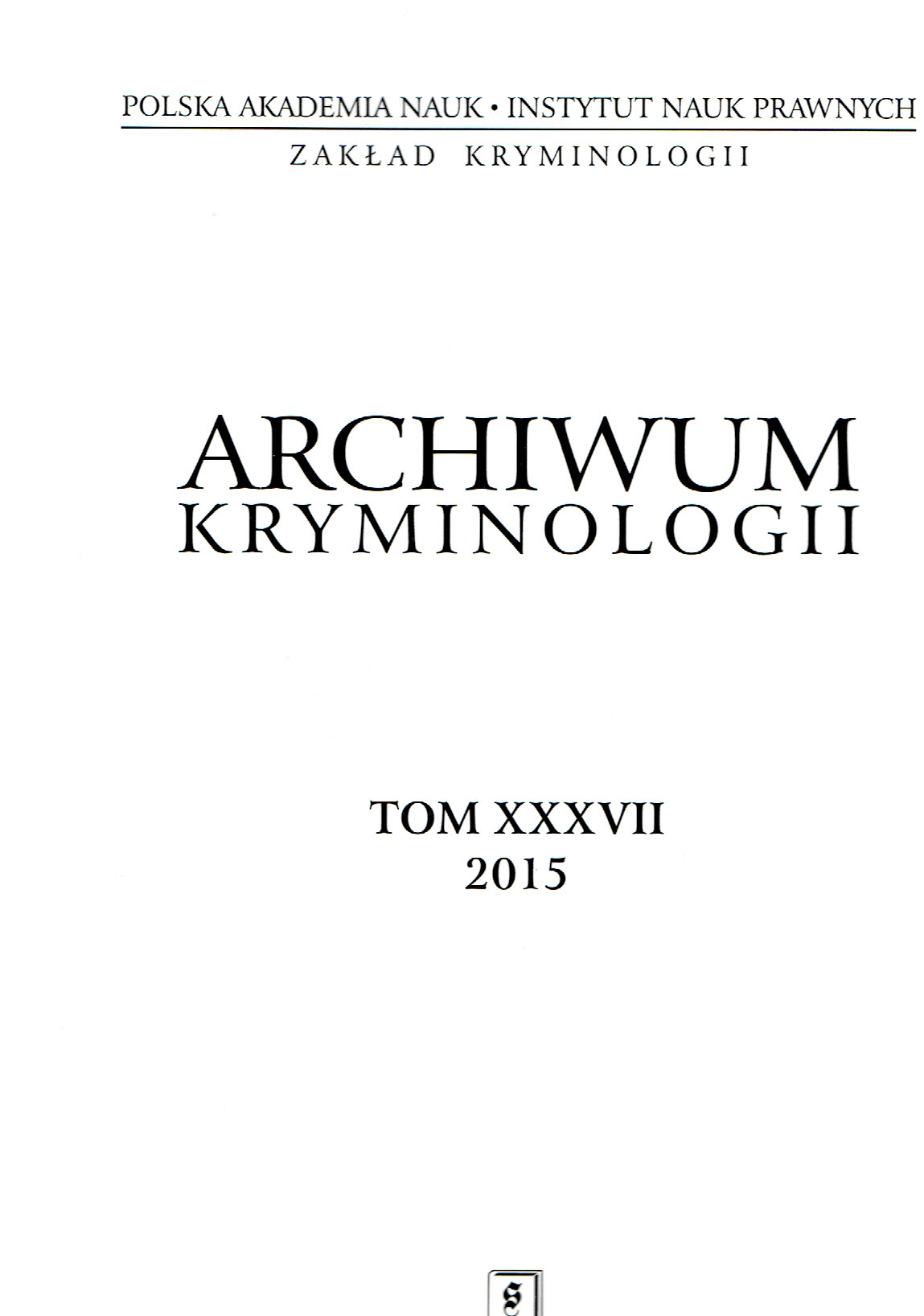INDYWIDUALNA OCENA SZCZEGÓLNYCH POTRZEB OFIARY: EUROPEJSKIE STANDARDY A REGULACJE POLSKIE .
An Individual Evaluation of the Specific Needs of Victims: European Standards and Polish Regulations
Author(s): Lidia MazowieckaSubject(s): Law, Constitution, Jurisprudence, Criminal Law
Published by: Instytut Nauk Prawnych PAN
Keywords: victim of crime; European standards
Summary/Abstract: This article is devoted to discussing a new EU law institution which is about theindividual assessment of the specific needs of victims within the framework ofprotection. The issue is important since the institution for individual assessmentshould be implemented in the Polish system of law, but it also happens to invokemany controversies and misunderstandings. Most accurately it became accepted inthe Directive of the European Parliament and Council 2012/29/EU on 25 October2012, establishing minimum standards for the rights, support and protection ofvictims of crimes, thus replacing Council Framework Decision 2001/220/JHA. Therehad previously been talk about it in two other directives, namely Directive of theEuropean Parliament and Council 2011/36/EU from 5 April 2011 which was aboutpreventing human trafficking and combating it as well as protecting victims, whichreplaced Council Framework Decision 2002/629/JHA, and Directive of the EuropeanParliament and Council 2011/93/EU from 13 December 2011 on combating sexualabuse, the sexual exploitation of children and child pornography, which replacedCouncil Framework Decision 2004/68/JHA. An instrument closer to individualevaluation was also introduced by the European Council Convention for preventingand combating violence against women and domestic violence on 11 May 2011. Analysis of the regulations contained in these documents proved that victims ofcrimes have to be subjected to individual assessment every single time, the basis ofwhich are their personal qualities, type and character of the crime, as well as theirlocation. A particular weight is attached to ensuring the protection of the personalqualities of the victim. Individual assessment, on the one hand, should get confirmationif the given victim has specific needs, and if so, what kind of protection in criminalproceedings and support they need. On the other hand, it describes concrete means ofprotection and support as foreseen in the articles of the above-mentioned documents.So it is therefore best to adapt these means to specific needs.The discussed international documents prescribe always recognising a child asa person of specific needs, defining them as any person under 18 years of age. It alsoindicates that a person whose age cannot be confirmed, but for whom there are reasonsto believe they are a child, should be considered a child. For children that are victims ofcrimes, they also anticipate a wider catalogue of measures than for adult victims withspecific needs. An analysis of Polish law regulations has been made against a background ofsolutions accepted in international law acts. The analysis included in its particularscovers issues such as the problem of informing the victim about their entitlement torights, professional preparation of people who have contact with them on a professionalbasis, confirmation of special protection measures for the victims in criminal proceedings, appointment of procedural curators for harmed minors to preventconflicts of their interests with those of people who have parental custody or care overthem. Also referenced were solutions introduced by the act from 28 November 2014 about protection and aid for victims and witnesses, as well as the “Blue Card” procedurecarried out during interventions in situ undertaken in relation to family violence. Also discussed were the questionnaires prepared by the Ministry of Justice tocarry out the evaluations of specific needs of victims – this is part of the scope of thespecialist help they are meant to provide non-governmental organisations supportingvictims as well as within the scope of sharing special means for protection during criminal proceedings. It turned out that a significant majority of Polish legal normsand practices do not conform to international standards in the discussed field. With fullcertainty, institutions of individual assessment have not yet been implemented in Polish legislation, while the achieved undertakings appear insufficient. One can even say thatthey have only been pretending to aim to implement them. A specific objection is thefailure to achieve any activities aimed at ensuring a uniform standard of protectionfor all children. So children are held using current regulations under which the levelof their protection is dependent on their age and the type of criminal victimisationexperienced. Nor was there a separate category of victim with special needs in terms of protection. So special protection methods are still only given to victims of crimesof a sexual nature, as classified in articles 197 to 199 of the Criminal Code. In place ofthis, regulations ought to be introduced enabling specific methods of interrogating allvictims with special protection needs. Nor does it take into account the will of victimsabout the use of certain measures that they agree with subjectively
Journal: Archiwum Kryminologii
- Issue Year: 2015
- Issue No: XXXVII
- Page Range: 253-278
- Page Count: 26
- Language: Polish

